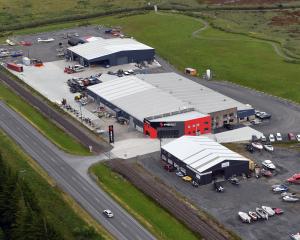The South has avoided the worst of the economic recession, Finance Minister Bill English told party faithful in Timaru at the weekend.
Mr English told a conference of South Island National Party members that over half the growth in new unemployment figures announced last week occurred in Auckland, which was more heavily exposed to debt and the property market, and was more reliant on retail spending.
"The further north you go, the tougher the outlook has been."
While the budget later this month was a challenge, Mr English said commentators were wrong to describe it as a black budget.
He said health and education would get extra spending, as the party promised in the election campaign, and there would be more police, extra funding for hospices, and money for the cancer-treating drug Herceptin.
Energy Minister Gerry Brownlee also announced at the conference that the budget would allocate $20 million over two years for seismic data gathering for energy and mineral exploration.
Mr English said the budget would also reveal a plan addressing growing public debt.
The Government's books last week revealed an operating deficit blowout of $7.7 billion in the nine months to March 31, a 324% turnaround from October's forecast surplus of $3.44 billion.
"It's not going to be a black budget. We will legislate in place all existing entitlements as New Zealanders need a sense of security at a time of recession, and we're committing to the provision of health, education, law and order."
Mr English said the budget was designed to address the country's productivity rates, starting with the public service, with Government activities accounting for 25% of economic activity.
Earlier, the Associate Minister of Finance, Steven Joyce, said between 1998 and 2009 the tax take rose 25%, the economy grew at 3% a year, but Government expenditure rose 51%.
Mr Joyce said much of that new spending was poorly directed.
Mr English said his aim was to protect people from the sharpest edges of the recession and gear up the economy so it would benefit as countries emerged from the recession.
He said the three greatest risks facing New Zealand were the flow-on effects of rising unemployment; if the banking system became unstable; and if the economies of our trading partners remained weak.
But he said the public was more receptive to change than they were in the 1980s, and this gave him confidence the economy would survive the recession.
"As I get around the country, I see people who are realistic; rolling up their sleeves because they know what they have got to do."











